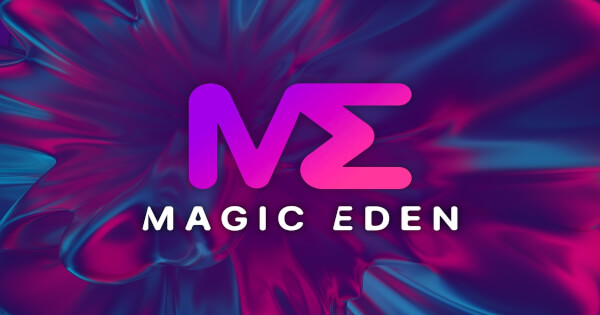Magic Eden, a leading figure in the NFT marketplace, has unveiled its integration of cNFTs, a pioneering form of NFTs that are exclusive to the Solana blockchain. The term “cNFT” is an abbreviation for “compressed NFTs”, underscoring their unique capability to be crafted at a fraction of the cost of their traditional counterparts.
The announcement from Magic Eden delved deep into the potential of cNFTs. One of the primary advantages is their cost-effectiveness, which empowers creators to produce content on a grander scale without the hefty price tag. This not only paves the way for increased experimentation by creators but also provides a more accessible gateway for newcomers to the NFT realm. By making the entry point more affordable and less risky, Magic Eden believes that cNFTs have the potential to revitalize the NFT landscape, making it more vibrant and inclusive for collectors.
However, the introduction of cNFTs hasn’t been without its share of controversies. The choice of the term “cNFT” drew criticism from certain quarters of the digital community. A tweet from user @21e6Crypto on September 15 questioned Magic Eden’s decision to adopt an acronym that was already in circulation within the NFT ecosystem. Responding to the critique, Magic Eden clarified their stance, stating, “we didn’t create cNFTs, we integrated support for them.”
A deeper exploration into the mechanics of cNFTs reveals their foundational reliance on Merkle trees. This data structure is renowned for its ability to “compress” the verifiability of a vast data tree into a singular, identifiable “hash”. Solana Labs engineers have further refined this compression technique, introducing a capability that permits multiple simultaneous updates to Merkle trees within one block. This innovation is a hallmark of Solana, as detailed in their whitepaper.
For developers eager to harness the potential of cNFTs, a comprehensive understanding of Merkle trees is indispensable. Once the Merkle tree is initialized, NFTs can be minted using specialized tools. One such tool isBubblegum, a smart contract devised by Metaplex. To fetch the most recent data, developers would need to rely on RPCs, with platforms like Helius, SimpleHash, and Triton offering support for cNFTs. Lastly, to make any modifications to the NFTs, Merkle tree proofs are a prerequisite.
In conclusion, Magic Eden’s strategic decision to support cNFTs is a testament to the rapidly evolving dynamics of the NFT market. As platforms continue to push the boundaries of innovation, the broader community and industry stakeholders will be closely monitoring the adoption trajectory and broader implications of these compressed NFTs.
Disclaimer & Copyright Notice: The content of this article is for informational purposes only and is not intended as financial advice. Always consult with a professional before making any financial decisions. This material is the exclusive property of Blockchain.News. Unauthorized use, duplication, or distribution without express permission is prohibited. Proper credit and direction to the original content are required for any permitted use.
Image source: Shutterstock








